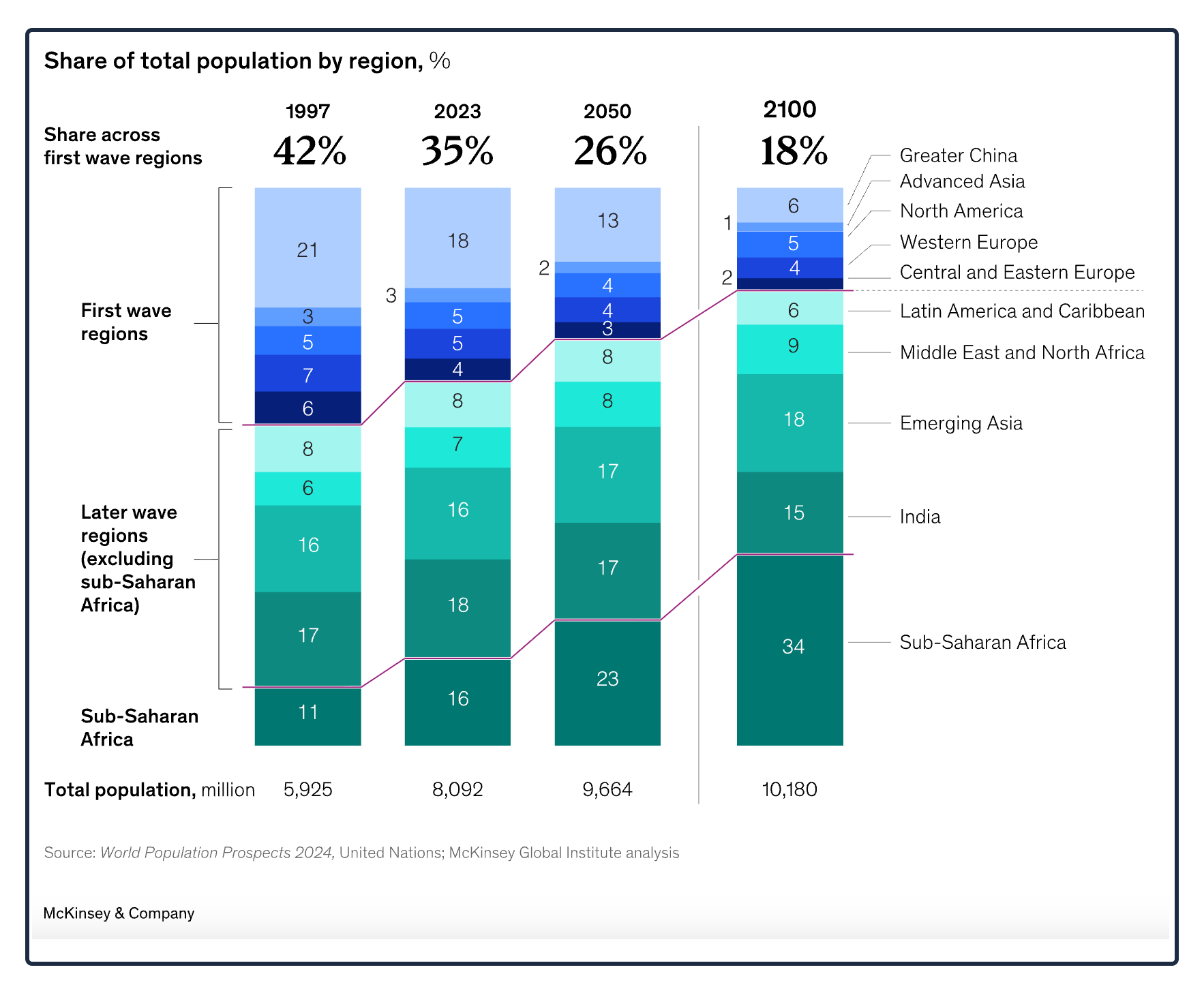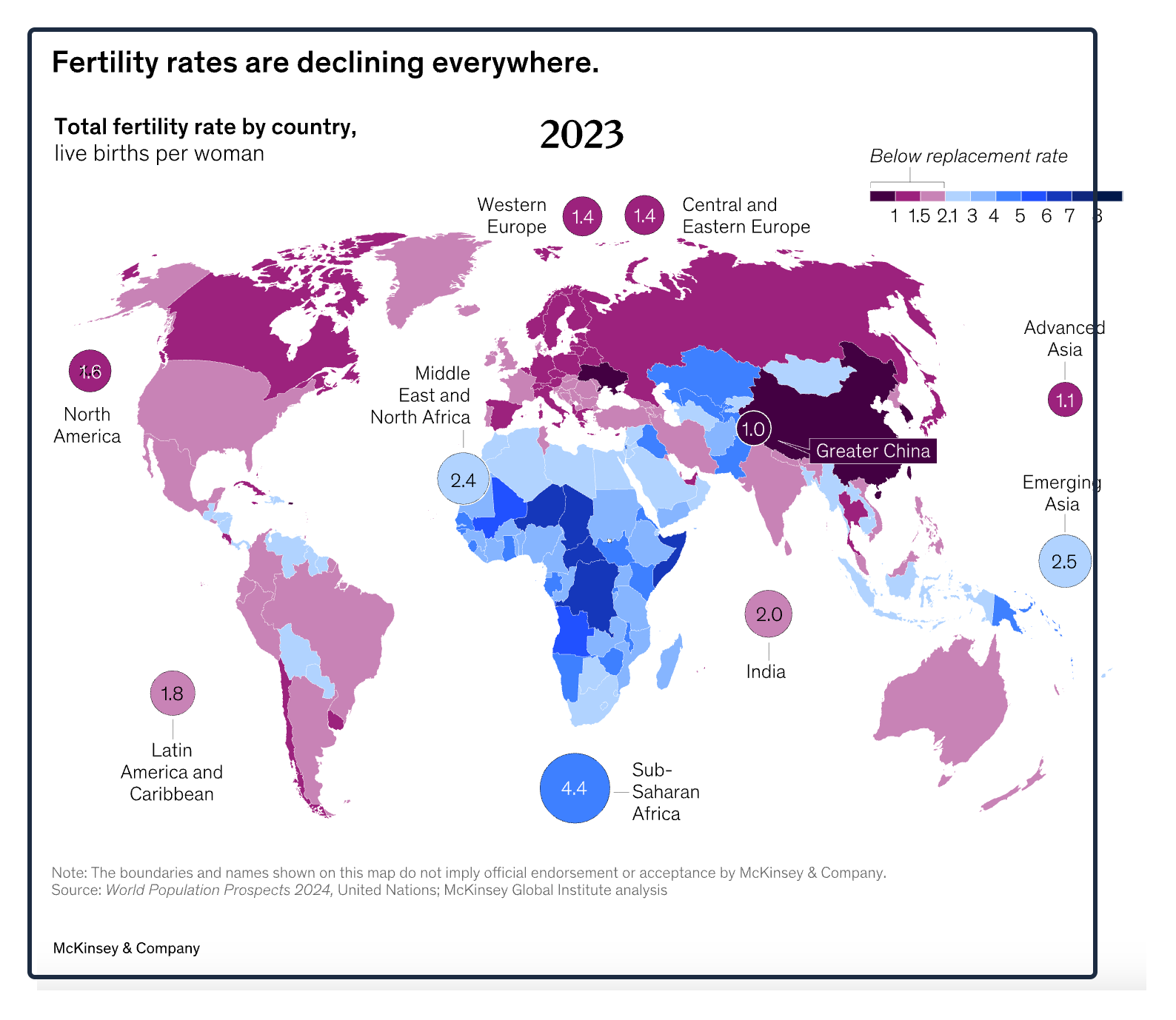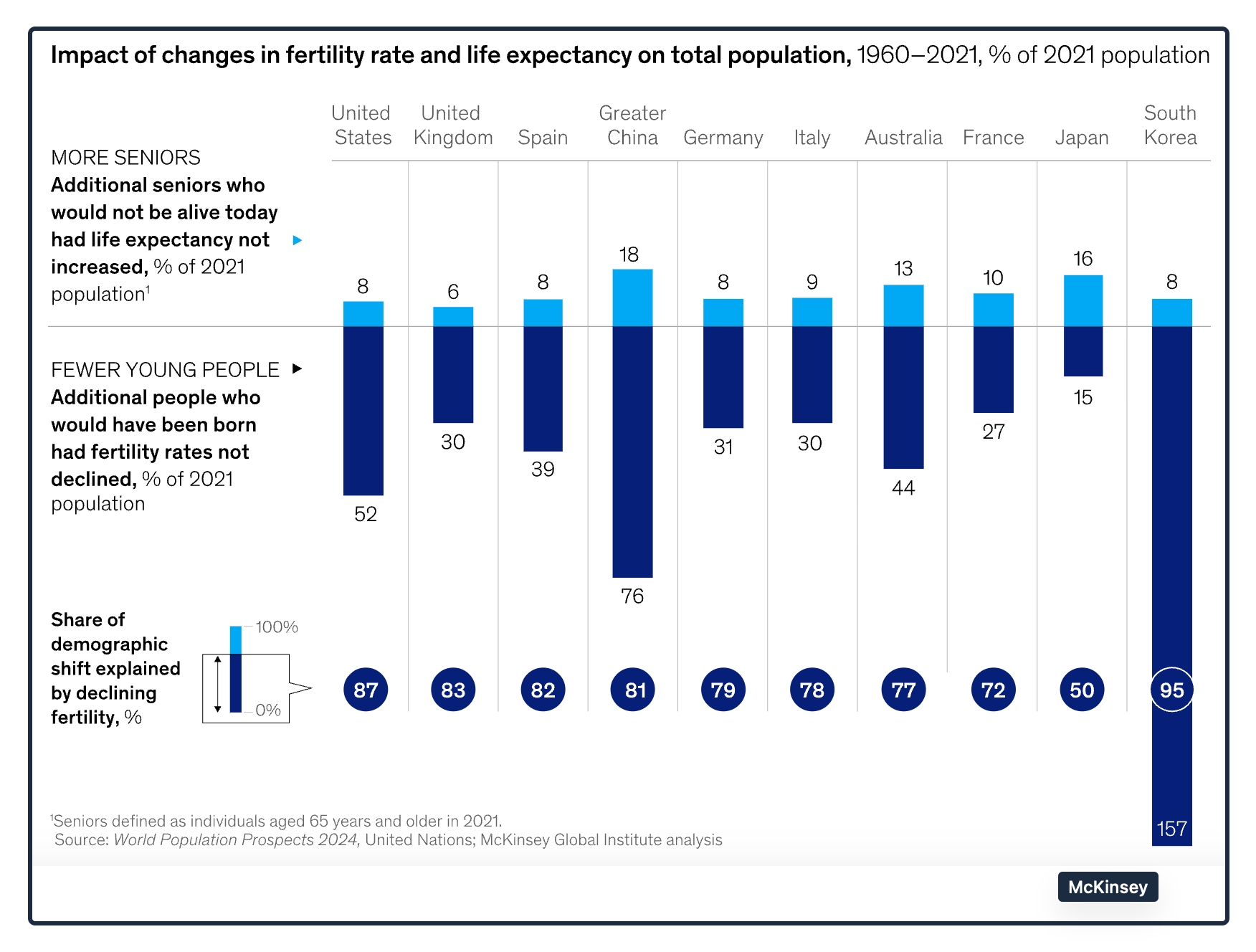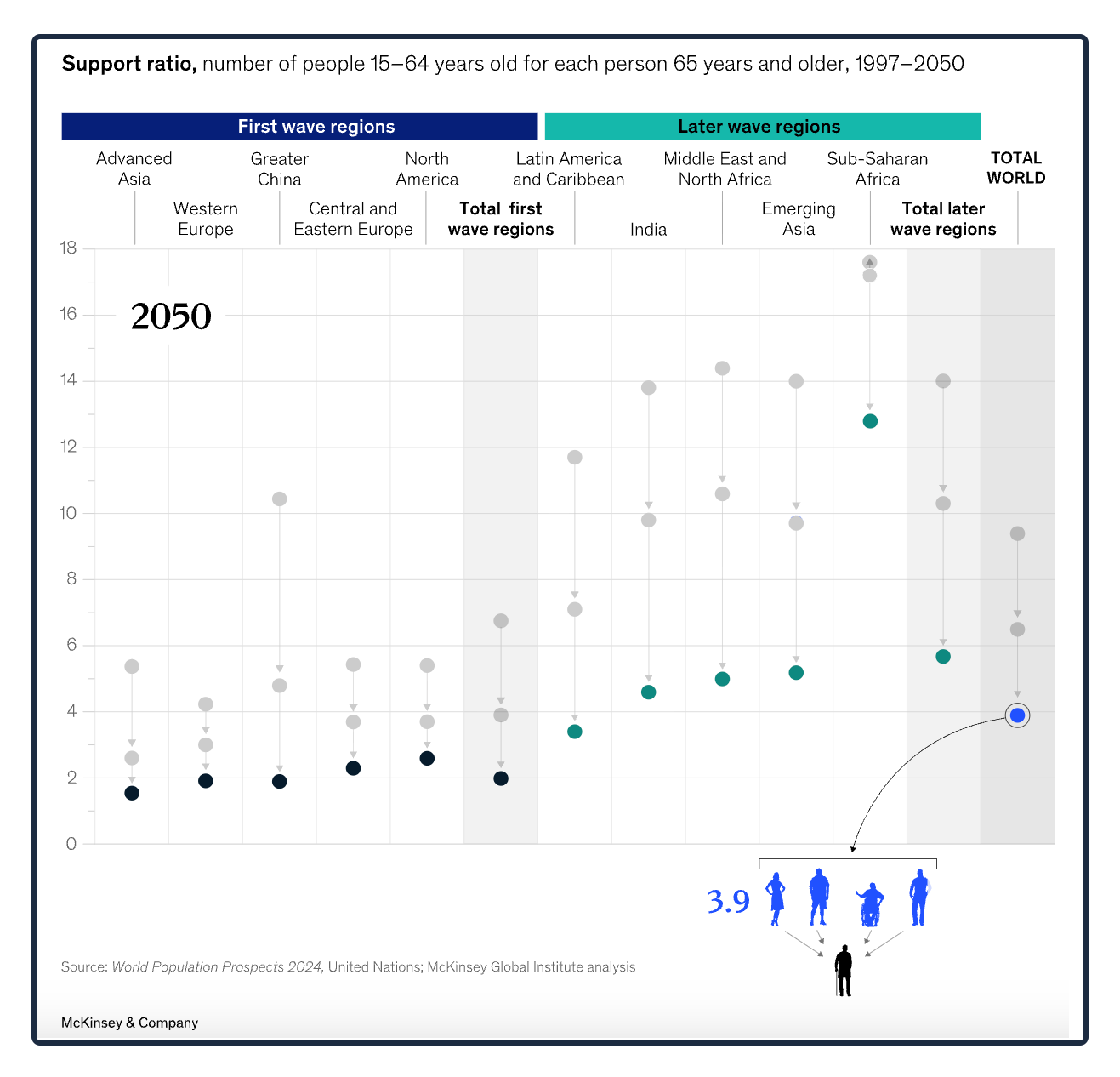
Why China’s Meat Consumption is Changing
September 17, 2025
Where Wild Chimpanzees Drink a Daily Bottle of Beer
September 19, 2025Because of declining fertility rates, scientists hypothesize that the world’s population will shift toward sub-Saharan Africa:

As age structures change, so too will our lives. With relatively fewer births and longer lives, at home, we will need fewer nurseries and more rooms for our aging parents. We will have an aging population that consumes more of the world’s resources.
Fertility Rates and Aging
It all began with Luxembourg in 1950 when, at 2.1, its fertility rate fell below replacement. As Luxembourg’s fertility sunk, rose, and sunk again, Serbia and Croatia, and then Denmark and Finland followed. Just a beginning, during subsequent decades, North America, Europe, and Advanced Asia’s fertility rates descended below the 2.1 line. Sub-Saharan Africa has been the one region that exceeded its replacement rate:

If we looked at population pyramids, we would see a broadening at the top while the bottom narrows. The new distribution affects public finances, consumption, and labor markets. Older people spend their pensions rather than accumulating them. The elderly need new living facilities, more healthcare, and they shop differently from their children. And they depend more on labor force support.
This McKinsey graphic compares the impact of more seniors and fewer young people. It reflects, for example that between 1960 and 2021, 26 million fewer babies were born in Germany. By contrast, you can see that Japan stands alone with an equal birth and aging impact:

Our Bottom Line: Support Ratios
With relatively fewer babies, the working age population will contract globally in several waves that peak at different times. The result will be smaller support ratios that compare the elderly to the working age population.
At 9.4 in 1997, now we’ve fallen to 6.5 working people per older individual. By 2050, researchers expect the ratio to plunge to 3.9:

Returning to where we began, the result is a population shift to later wave countries.
My sources and more: Chock full of data, this McKinsey Global Report had our facts.
![econlifelogotrademarkedwebsitelogo[1]](/wp-content/uploads/2024/05/econlifelogotrademarkedwebsitelogo1.png#100878)




